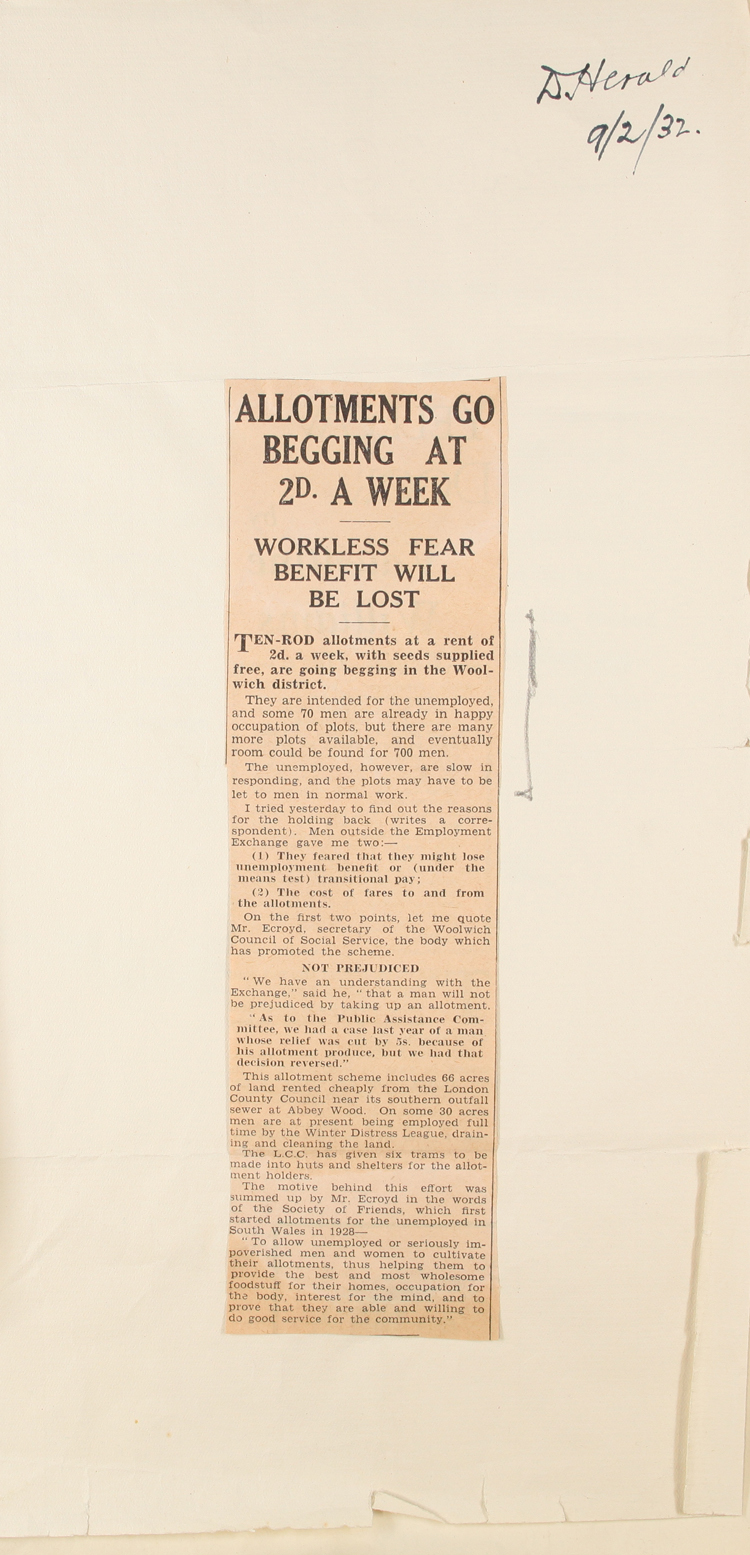
Article from the Daily Herald about an allotment scheme for the unemployed, 9th February, 1932 (PREM 1/141)
Extract copyright Mirrorpix. Used by permission.
Transcript
ALLOTMENTS GO BEGGING AT 2D. A WEEK
WORKLESS FEAR BENEFIT WILL BE LOST
TEN-ROD allotments at a rent of 2d. a week with seeds supplied free are going begging in the Woolwich district.
They are intended for the unemployed, and some 70 men are already in happy occupation of plots, but there are many more plots available, and eventually room could be found for 700 men.
The unemployed, however, are slow in responding, and the plots may have to be let to men in normal work.
I tried yesterday to find out the reason for the holding back (writes a correspondent). Men outside the Employment Exchange gave me two:-
1) They feared that they might lose unemployment benefit or (under the means test) transitional pay;
2) The cost of the fares to and from the allotments.
On the first two points let me quote Mr. Ecroyd, secretary of the Woolwich Council of Social Service, the body which has promoted the scheme.
NOT PREJUDICED
“We have an understanding with the Exchange,” said he, “that a man will not be prejudiced by taking up an allotment.
“As to the Public Assistance Committee, we had a case last year of a man whose relief was cut by 5s because of his allotment produce, but we had that decision reversed.”
This allotment scheme includes 66 acres of land rented cheaply from the London County Council near its southern outfall sewer at Abby Wood. On some 30 acres men are at present being employed full time by the Winter Distress League, draining and cleaning the land.
The L.C.C. has given six trams to be made into huts and shelters for the allotment holders.
The motive behind this effort was summed up by Mr. Ecroyd in the words of the Society of Friends, which first started the allotments for the unemployed in South Wales in 1928-
“To allow unemployed or seriously impoverished men and women to cultivate their allotments, thus helping them to provide the best and most wholesome food stuff for their homes, occupation for the body, interest for the mind and to prove that they are able and willing to do good service for the community.”
